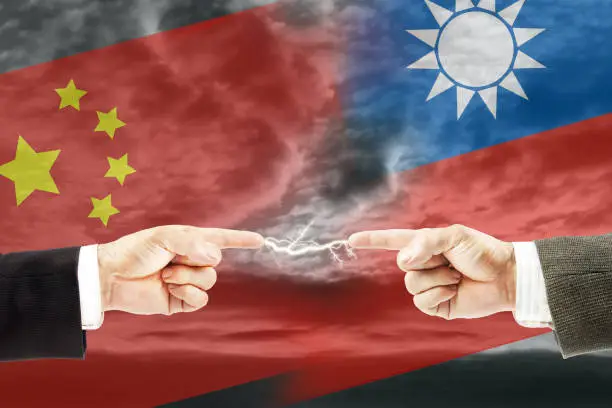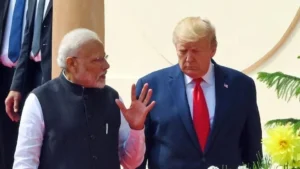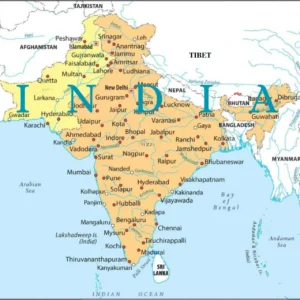
In a surprising conflict escalation, China has initiated a wide-ranging military attack on Taiwan, which is seen as a turning point in East Asian geopolitics. The conflict started with some coordinated air and naval strikes against critical military establishments and facilities in Taiwan, sending the area into disarray. Continue reading and get more brief information in this article on China Taiwan conflict.
From Tension to Action: When Will China Strike Taiwan
China’s intentions towards Taiwan, therefore, will depend on internal political dynamics in China and Taiwan as well as international reactions. Internal factors also come into play and these may include economic conditions within both nations. The issue at hand however is more complex because one has to consider historical contexts, current diplomatic relations, military strategies, and global implications of the same. This is not an easy thing to do since all these considerations ought to be looked at while bearing in mind that there are no clear answers available yet. Because of this, therefore, people keep asking themselves whether it would be wise for Beijing to make such a move at this time given the fact that relations between them have warmed up so much lately so they could not imagine anything like this happening on their part anymore even among themselves without any major provocation from either side.
Preparing for War: How Both Sides Are Mobilizing
Amid escalating tensions between China Taiwan conflict, both nations are rapidly mobilizing their military forces and resources in anticipation of potential conflict. China has increased its naval presence in the Taiwan Strait and conducted extensive military exercises, emphasizing its commitment to reunification by force if necessary. On the other hand, Taiwan is strengthening its defenses – with more advanced missile systems being deployed there and new strategic relationships with international friends being fostered as an indication according to Taiwan’s latest plan. Consequently, amid rising geopolitical tensions regionally at least both parties are preparing more consciously though they do acknowledge that doing so would invite various military and diplomatic responses from other states in the Asia-Pacific region as well as beyond and will have wide-ranging implications over a long period.
Strategic Locations: Key Battlefronts in the Taiwan Strait
What has become a place of higher military tensions is the Strait of Taiwan which is a narrow and at the same time, strategically important water body dividing Taiwan and mainland China. Among the battle stations, there are some important ones such as Matsu and Kinmen Islands, which are not more than tens of miles from the other side of China meaning they play vital roles in case of any war outbreak by Taiwan. Besides, in the center and south of the Strait, there is a lot of naval action that centers on Taiwan’s navy trying to stop the aggressive movements of China’s People’s Liberation Army Navy (PLAN). Chinese aircraft usually come into this area, which is a very hot “spot” up there in air space causing Taiwan jet fighters to move fast for interception purposes due to many invading times by the aircraft. For both adversaries, it means a lot as whoever controls them may turn out to be the victor in this battle.
The Technology Edge: Advanced Weaponry in the China Taiwan War
The China Taiwan conflict is heavily dependent upon advanced weapons. In their arsenal, China has hypersonic missiles which are able to bypass ordinary missile interference systems, advanced stealth warplanes such as the J-20, and an incredibly tough cyberwar machine meant for disrupting communications and control infrastructures in Taiwan. Despite being at a technological disadvantage compared to its adversary, Taiwan has spent much money on developing capabilities for carrying out unconventional wars. Explore Which Weapons Can China Use While Fighting Taiwan?
Will China Invade Taiwan?
The question “Will China Invade Taiwan?” is still hotly debated and worried about by the world community. Nevertheless, despite all the statements made by China about its ownership of Taiwan, the way it has conducted military drills and delivered combative speeches justifies these concerns. Current researches affirm that the PRC is likely to launch a fierce re-unification campaign soon since the military deployment has risen to unprecedented levels while sitting at critical points. On the other hand, Beijing’s decision-makers are worried about the high costs and risks that would arise if they invaded Taiwan because they would likely face significant military casualties as well as international conflict. The standoff, for which we should expect such tactics as economics, diplomacy, and war to be used by the antagonists on either side, is subject to change regularly.
International Reactions: How the World is Responding to the China Taiwan Conflict
In response to the conflict between China and Taiwan, the global community has made it clear that what the Chinese authorities are doing is a bad thing, considering how bad it is when people fight against each other. The United States, Japan, and the European Union nations want war between the two countries to be stopped in order to protect Taiwan. Meanwhile, there are some countries that have tried to undermine China’s economy, but others give their assistance to defense forces which include food parcels or weapons for self-defense to Taiwan. The United Nations called for an emergency meeting in order to discuss the crisis, but political schisms in the Security Council have been making it hard to come up with concrete solutions. Worldwide financial markets have since reacted with fluctuating prices that reflect serious conflict threats on world balance.
The Role of the United States: An Ally in Crisis?
The United States as Taiwan’s main ally is critical, giving moral and material support in the face of Chinese aggression. U.S. forces stationed in the Pacific region, including Navy and Air Force units, have been placed on high alert status, some having already moved into position to bolster Taiwan’s defenses. As well, Washington has increased arms sales meant for Taiwan such as selling advanced missile systems and fighter jets.
Allies and Enemies: China's Relationships in the Region
China is in the mix regarding its regional relationships with both strategic allies as well as rivals. Because they consider it a necessary evil, countries such as North Korea and Pakistan have thrown their support behind China’s actions due to their geopolitical interests which contradict those of America. Nevertheless, other regional heavyweights like Japan, South Korea, and Australia have strongly criticized the aggressive behavior displayed by China in recent times with considerable fear of the destabilization of the Asia-Pacific region. ASEAN is split with member states Zil having i struggling dynamic economic interest in China and oftentimes raises these issues in terms of security. Russia treads nimbly; it does not engage directly but supports China indirectly for the purpose of counterweighing Western pressure.
Diplomatic Efforts: Can Peace Still Be Achieved?
Even though the conflict is intense, there are diplomatic moves going on with a view to finding an answer through peace. There are mediations going on under the auspices of the United Nations, Switzerland, and Sweden on neutral grounds that target the de-escalation of hostilities. Ideas being floated entail peace pacs, and reciprocal pull out of troops among others like the establishment of demilitarized areas. There are propositions for economic rewards and guarantees of Taiwan’s independence in a One-China framework, with mistrust standing as a big problem. Thus, the success of these moves hinges on the readiness of both sides for concession on the one hand, and the capacity of outside mediators on the other hand to impose/follow through[enforce] with respect to such an agreement.
Yes. Taiwan and China are seen as political as well as military enemies since they have opposing views on government systems and territorial autonomy.
Taiwan is approximately 100 miles (160 kilometers) is the distance between China’s southeast shore and Taiwan; both being separated by the Taiwan Strait.
The main grounds for the disagreement are that China insists on its position that Taiwan is part of itself whereas Taiwan asserts that it has its own government and operates as its distinct country.
The two nations are in a sovereignty-related conflict: China with reunification as its goal and Taiwan intends to maintain its sovereignty while upholding democratic processes.
The tensions are high and there is a possibility of conflict, whether or not China goes to war with Taiwan depends on different political, military as well as diplomatic factors.





